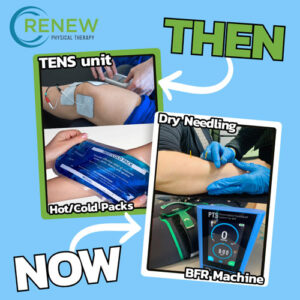
It’s no secret that staying hydrated is important, but did you know that water plays a pivotal role in physical pain management, healing, and even injury prevention? Physical therapists see it every day—the difference hydration can make in recovery and overall physical health. Let’s dive into the science of how water impacts your body and why it’s essential for staying active and pain-free.
Hydration and Muscle Health
Water is critical for maintaining muscle function. Muscles are made up of about 75% water, and they rely on hydration to contract and relax efficiently. When you’re dehydrated, muscles can become stiff and prone to cramping, which increases your risk of strain or injury. Proper hydration improves muscle health by keeping them supple and ready to support you, improving your training and exercise tolerance and performance.
Joint Lubrication and Pain Relief
Your joints also benefit greatly from adequate hydration. Synovial fluid, the substance that cushions and lubricates your joints, is primarily made of water. When you’re well-hydrated, your joints are better protected against wear and tear, which can reduce the risk of pain and stiffness associated with arthritis or overuse. Hydration also aids in reducing inflammation, a common culprit behind joint pain.
Faster Healing, Better Recovery
Recovering from an injury? Water plays a crucial role in the healing process. Proper hydration ensures that your blood carries essential nutrients and oxygen to damaged tissues, speeding up repair and recovery. It also aids in flushing out toxins and waste products from injured areas, reducing swelling and promoting a quicker return to activity.
Tips to Stay Hydrated
Here are some practical hydration tips to keep your body in peak condition:
- Stay hydrated consistently: Don’t wait until you feel thirsty – thirst is your body’s way of signaling dehydration. Instead, aim to sip water regularly throughout the day. Bonus Tip: Start your morning with a glass of water! After a long night without fluids, your body is at its most dehydrated first thing in the morning, making this a healthy and energizing habit.
- Monitor your urine color: Light yellow is ideal; dark yellow may indicate dehydration.
- Balance electrolytes: If you’re sweating heavily during exercise or on a hot day, consider drinks that replenish electrolytes, which are important for mineral balance for true hydration.
- Eat hydrating foods: Fruits and vegetables like cucumbers, watermelon, and oranges are great sources of hydration.
The Takeaway
Water isn’t just something you drink when you’re thirsty; it’s a cornerstone of physical health. By staying hydrated, you can reduce pain, heal faster, and even avoid injuries altogether. So, grab your water bottle and make hydration a priority. Your body will thank you for it!







